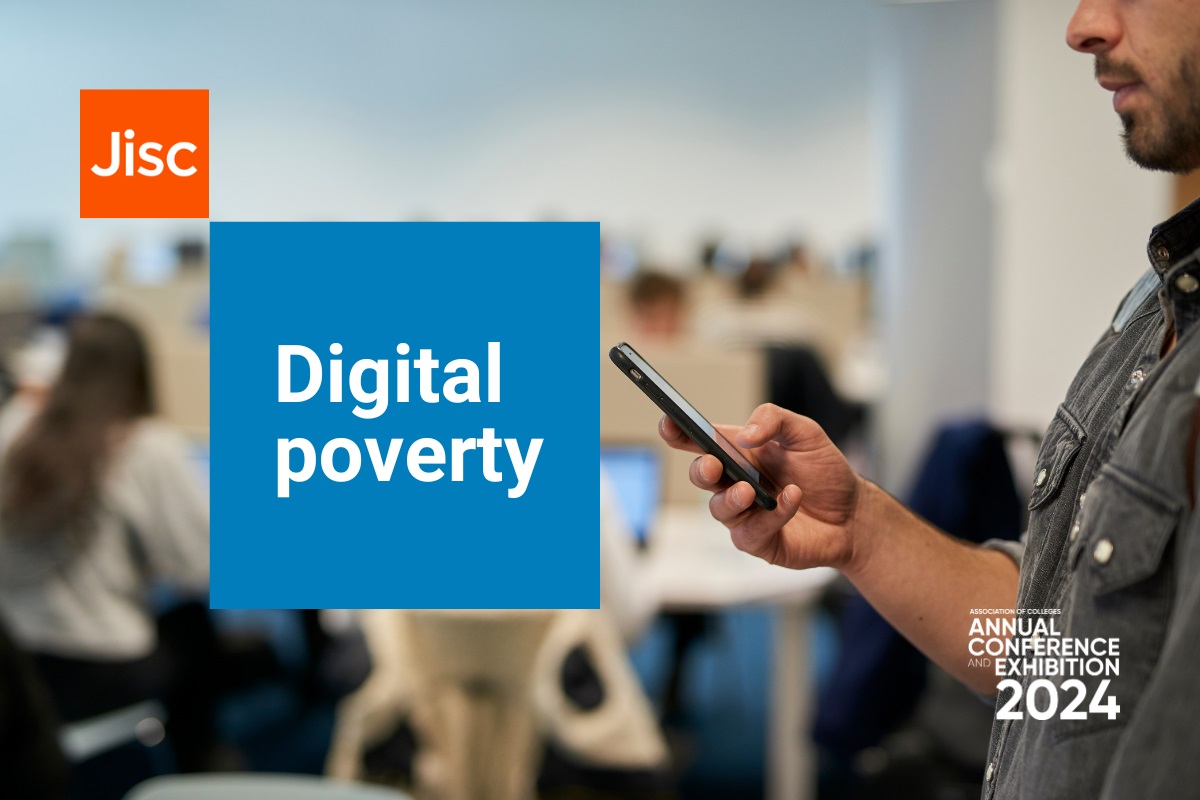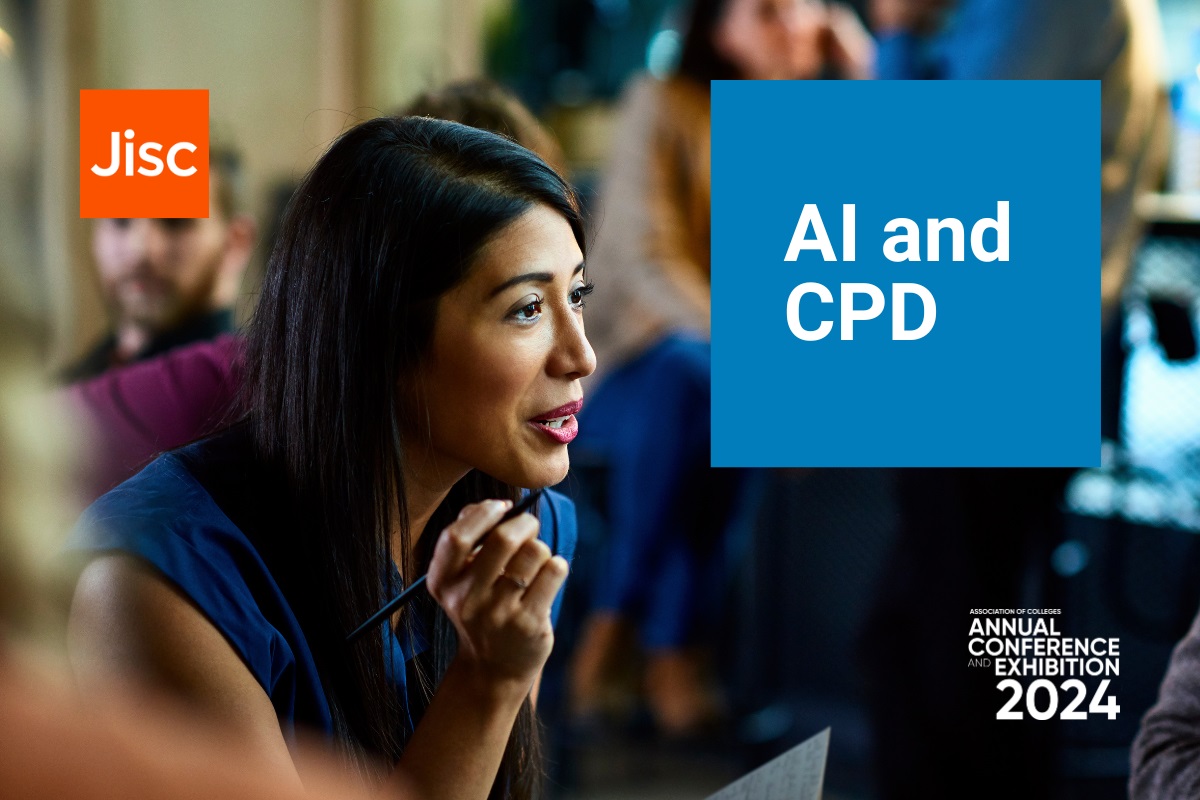Digital Poverty in the Age of AI

At the 2024 Association of Colleges (AoC) conference, Jisc hosted a series of live podcasts on its exhibition stand, focusing on some of the key digital priorities keeping FE leaders awake at night.
Dr. Maxine Room CBE, associate director of leadership, mentoring and coaching at the Black Leadership Group and head of people operations at Unyted, and Paul McKean, director of FE and skills at Jisc join Frankie Walker, Jisc’s senior public affairs officer to explore digital poverty, addressing the challenges and solutions to ensure equitable access to AI-driven education.
AI and fair access
Digital poverty is a serious issue in the UK, and it’s only getting worse. By 2032, 5.8 million people are expected to remain digitally excluded. While AI has the potential to bridge this divide, it could also make things worse depending on how it is used.
The biggest barriers to digital equity are access to devices, internet connectivity, and digital skills. Without these basics, learners won’t be able to take advantage of all the benefits technologies such as AI affords. Initiatives like social tariffs and free data plans are helping, but they’re not enough to fully address the issue.
What can education leaders do?
Leaders in education and other organizations have a key role to play in solving this problem. They must have a deep understanding of how technology works to ensure it’s used in an inclusive, equitable way. Technology should enhance access to education, not make it harder. This also means making sure privacy and data security are taken seriously.
AI literacy is another crucial area. Staff and learners must understand how to use AI tools safely and responsibly. This includes teaching them to question the trustworthiness of AI-generated information and understand how their data is being used by these systems. In many cases, even when using the free version of AI tools, there are often hidden costs associated such as data collection, and this is something anyone using these tools should be aware of.
Personalised support
When it comes to education, digital tools, especially AI, can really help disadvantaged learners. They can offer personalized support where previously this may not have been available and break down barriers like language or isolation. But, without proper access and guidance, AI could end up widening the gap between learners.
AI must be used to support, not replace, teachers. It can enhance learning, deepen critical thinking, and develop the digital skills employers are looking for. By using AI in the classroom teachers can also have more time to spend nurturing essential soft skills that are critical for the world of work. But it should always complement, not replace, the role of educators.
The way forward
A clear focus from government and a commitment for funding to support those currently struggling with digital poverty, and to help prevent it in the future, will make a big difference for learners, especially those who are disadvantaged, so no one gets left behind.
The current curriculum and assessment review is an important step forward and a great chance to highlight how vital digital skills are in education and the world of work, with an emphasis on fair access to all.









Responses